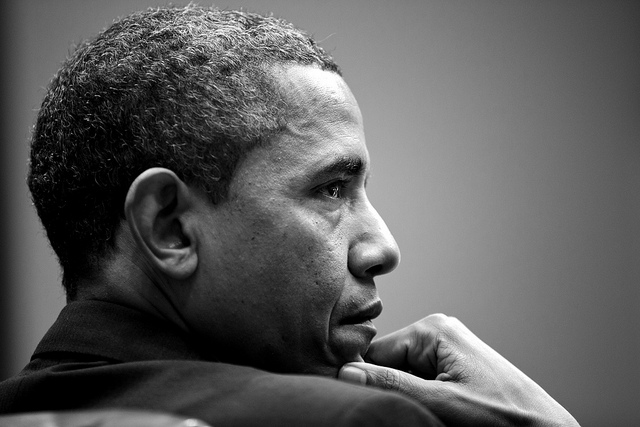ASPI suggests
Posted By
Harry White and Natalie Sambhi
on March 4, 2013 @ 13:00

Welcome back for our weekly round-up of news, reports and events in the defence, NatSec and strategy world.
It’s one minute past midnight, as
the sequester—USD$1.2 trillion of cuts across the US federal budget over the next decade, including defence—has gone into effect. Expect more bickering to follow,
writes The Economist.
For readers interested in
strategy, Adam Elkus has a
short and sweet review of a new edited volume by John Andreas Olsen and Colin Gray called
The Practice of Strategy: from Alexander the Great to the present which asks the fundamental question, is there unity to all strategic experience?
There’s cautious optimism from Trita Parsi in
this piece on recent negotiations over
Iran’s nuclear program;
the meeting in Almaty saw the paradigm of the talks shift from perpetual escalation to an exchange of concessions and incentives.
On a related note, why eliminate
nuclear weapons? James E. Doyle has a new
Survival article available free for download
here.
As part of a Yearbook pre-launch series, SIPRI has recently announced that
arms sales of the
top 100 companies have decreased in 2011. And here’s a
list of the top 100 arms-producing companies, excluding China.
Updated: Two of our ASEAN neighbours,
Malaysia and the Philippines have been drawn into resolving skirmishes that have resulted in the deaths of 14 Filipinos and
six Malaysian police officers. Here’s a quick summary: according to
media reports, the violence was sparked when dozens of followers from the Sulu sultanate in the Philippines sailed to Borneo 9 February
to claim the Malaysian territory Sabah on the grounds of ancestral rights. Although
leaders of both countries have called for an end to hostilities, the stand-off continues. For more detail, Reuters has looked at
oil interests of major firms in Sabah, Former Philippine President Fidel V. Ramos has
provided his analysis and Fairfax’s Lindsay Murdoch has
examined the ramifications for Malaysia’s elections if violence continues.
If you’re researching the conflicts in
Iraq or Afghanistan, RAND has a
new report that measures US troops deployments in terms of service and length.
Events
Canberra readers, register now for
ANU’s 2013 Myanmar/Burma Update Conference, Friday 15 to Saturday 15 March. It features panels addressing democratisation, political and economic issues, ethnic conflict, and the role of the security forces, and for the first time, a Burmese-language session.
Professor Tessa Morris-Suzuki will be speaking about
Japan’s second Abe government and its implications for the Asia–Pacific region. Hosted by AIIA ACT, it’s on Wednesday 13 March at 5.30pm.
If you’re interested in a career in national security, defence or intelligence, head down to the Kokoda Foundation National Security Careers Night on Thursday 14 March from 5.15pm, register
here.
For
Sydney-siders, Paul Barratt AO and Dr Sue Wareham OAM will be addressing the question,
why did we go to war in Iraq? Hosted by the AIIA NSW, it’s on Tuesday 12 March at 6pm.
Image courtesy of Flickr user The White House.
Article printed from The Strategist: https://www.aspistrategist.org.au
URL to article: https://www.aspistrategist.org.au/aspi-suggests-20/
[1] Image: http://www.aspistrategist.org.au/wp-content/uploads/2013/03/8476839488_c824a5ec33_z1.jpg
[2] writes: http://www.economist.com/blogs/democracyinamerica/2013/03/sequester
[3] short and sweet review: http://rethinkingsecurity.tumblr.com/post/44313901282/capsule-review-the-practice-of-strategy
[4] The Practice of Strategy: from Alexander the Great to the present: http://www.amazon.com/Practice-Strategy-Alexander-Great-Present/dp/0199608636
[5] this piece: http://thediplomat.com/2013/03/01/the-ball-is-in-irans-court/
[6] here: http://www.iiss.org/publications/survival/survival-2013/year-2013-issue-1/why-eliminate-nuclear-weapons/
[7] top 100 companies have decreased in 2011: http://www.sipri.org/media/pressreleases/2013/AP_PR
[8] list: http://www.sipri.org/research/armaments/production/Top100
[9] six Malaysian police officers: http://www.nytimes.com/2013/03/04/world/asia/04iht-malaysia04.html
[10] media reports: http://www.radioaustralia.net.au/international/2013-03-02/malaysian-police-killed-in-latest-clash-with-filipino-gunmen/1095836
[11] to claim the Malaysian territory Sabah: http://www.philstar.com/headlines/2013/02/16/909935/news-analysis-standoff-sabah-could-derail-peace-process-mindanao
[12] leaders: http://www.nytimes.com/2013/03/03/world/asia/aquino-calls-for-surrender-of-filipino-group-in-malaysia.html?_r=0
[13] oil interests of major firms in Sabah: http://www.reuters.com/article/2013/03/03/us-malaysia-poltiics-idUSBRE92202A20130303
[14] provided his analysis: http://www.mb.com.ph/articles/396189/philippines-sulu-malaysia-sabah-asean-first-of-two-parts#.UTPy76Knr60
[15] examined the ramifications for Malaysia’s elections: http://www.smh.com.au/world/malaysian-opposition-fears-territorial-dispute-will-delay-poll-20130303-2fex0.html
[16] new report that measures US troops deployments: http://www.rand.org/pubs/research_reports/RR145.html#key-findings
[17] ANU’s 2013 Myanmar/Burma Update Conference: http://asiapacific.anu.edu.au/asiapacific-region/myanmarburma-update/conference-details-2013
[18] Japan’s second Abe government and its implications for the Asia–Pacific region: http://www.aiia.asn.au/act-events/event/635-tipping-the-balance-the-second-abe-government-japan-and-the-asia-pacific-region
[19] here: http://kokodafoundation.org/Bookings?eventId=625618&EventViewMode=EventDetails
[20] why did we go to war in Iraq?: http://www.aiia.asn.au/nsw-events/event/642-why-did-we-go-to-war-in-iraq
[21] The White House: http://www.flickr.com/photos/whitehouse/8476839488/in/photostream
 Print This Post
Print This Post